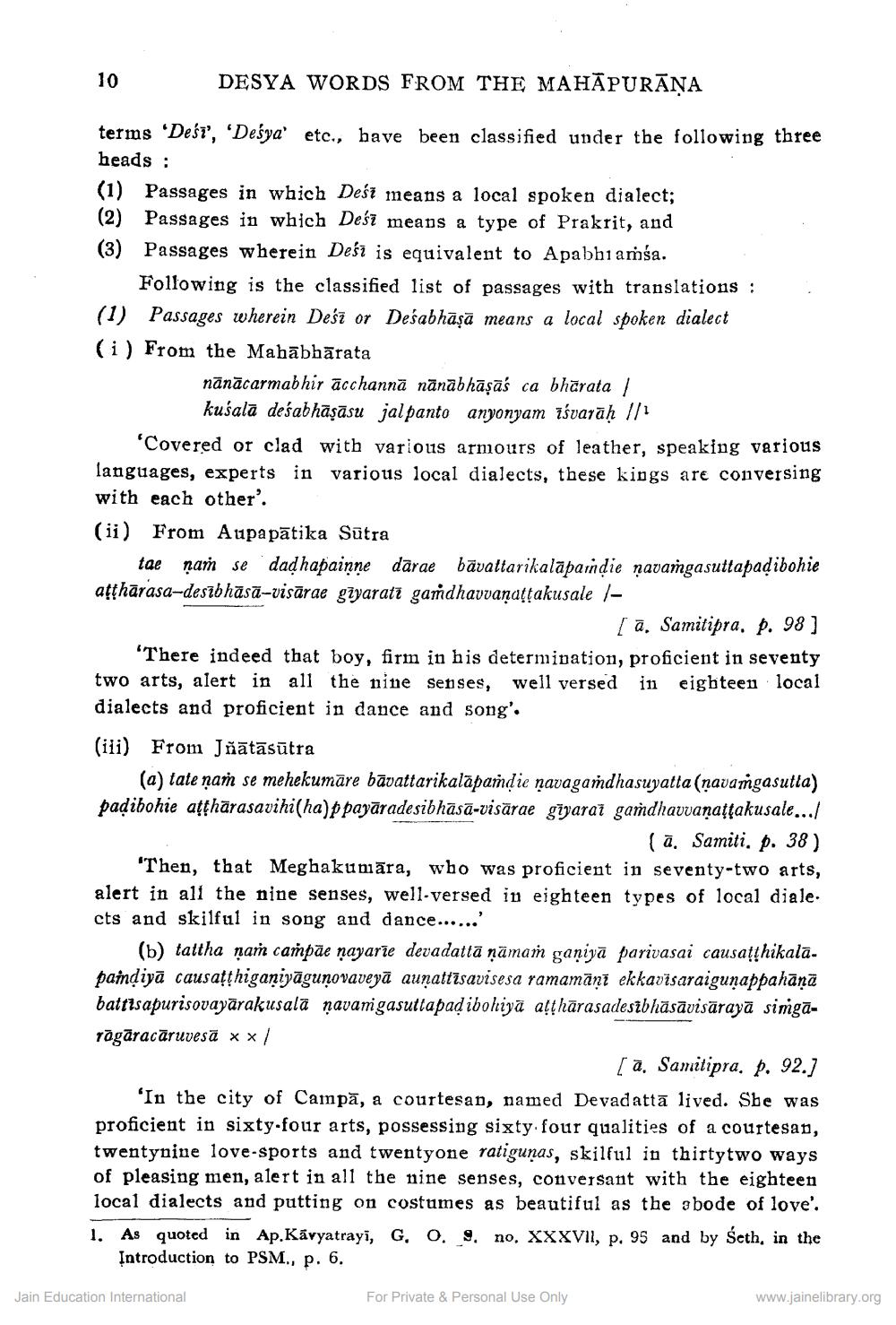________________
10
DESYA WORDS FROM THE MAHĀPURĀŅA
terms 'Deśr', 'Deśya' etc., have been classified under the following three heads : (1) Passages in which Deśr means a local spoken dialect; (2) Passages in which Deśī means a type of Prakrit, and (3) Passages wherein Desi is equivalent to Apabbiamśa.
Following is the classified list of passages with translations : (1) Passages wherein Deśc or Deśabhāṣā means a local spoken dialect (i) From the Mahābhārata
nānācarmabhir ācchannā nānābhāṣāś ca bharata /
kušalā deśabhāṣāsu jalpanto anyonyam īśvarāḥ // 'Covered or clad with various armours of leather, speaking various languages, experts in various local dialects, these kings are conversing with each other'. (ii) From Aupapātika Sutra
tae nam se dad hapainne darae bävaltarikalāpaindie navamgasuttapadibohie atthārasa-desībhāsā-visārae gżyarati gandhavvaṇattakusale -
[a. Samitipra, p. 98] "There indeed that boy, firm in his determination, proficient in seventy two arts, alert in all the nine senses, well versed in eighteen local dialects and proficient in dance and song'.
(iii) From Jňātāsūtra
(a) tate nam se mehekumāre bāvattarikalapamdie navagadhasuyatta (navamgasutla) padibohie atthārasavihi(ha)ppayāradesibhāsā-visārae gîyarai gadhavvanattakusale.../
(ä. Samiti, p. 38) "Then, that Meghakumära, who was proficient in seventy-two arts, alert in all the nine senses, well-versed in eighteen types of local diale. cts and skilful in song and dance......'
(b) tattha ņaṁ campãe nayarie devadattā ņāmam ganiyā parivasai causatthikalā. paindiyā causaţthiganiyāgunovaveyā aunattīsavisesa ramamānī ekkavisaraigunappahāna battisapurisovayārakusalā ņavamgasuttapad ibohiya althārasadesibhāsāvisārayā simgārāgāracāruvesā ~ */
[ 2. Samitipra, p. 92.] 'In the city of Campā, a courtesan, named Devadattā lived. She was proficient in sixty-four arts, possessing sixty four qualities of a courtesan, twentynine love-sports and twentyone ratigunas, skilful in thirtytwo ways of pleasing men, alert in all the nine senses, conversant with the eighteen local dialects and putting on costumes as beautiful as the abode of love'. 1. As quoted in Ap.Kāryatrayi, G,0. 9. no. XXXVII, p. 95 and by seth, in the
Introduction to PSM., p. 6.
Jain Education International
For Private & Personal Use Only
www.jainelibrary.org




